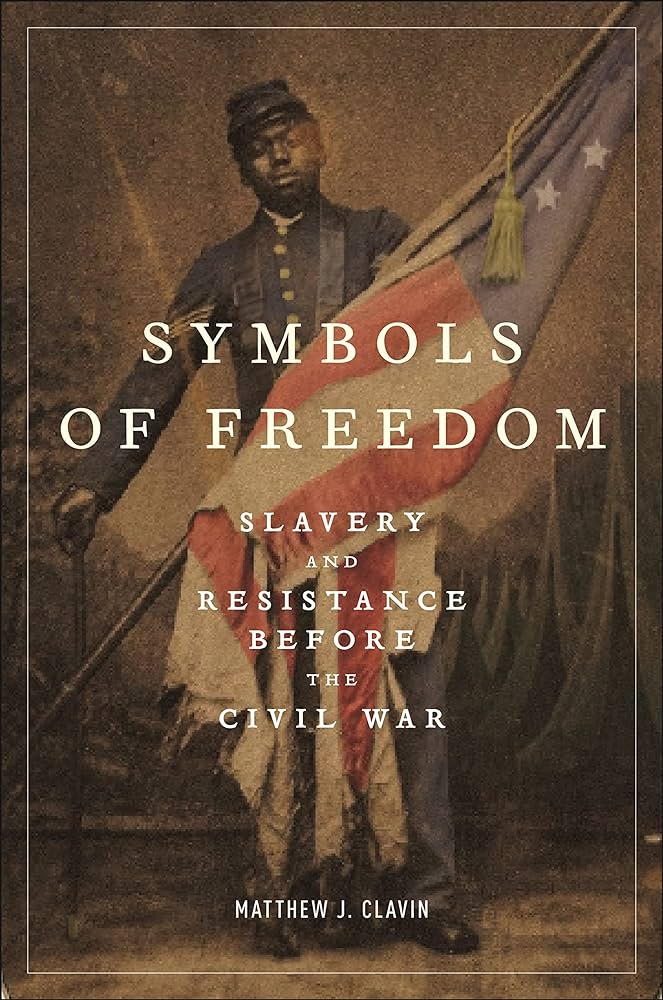In the summer of 1822, while traveling through Paris, Kentucky, James Dickey’s heart leapt when he heard music in the distance, which he interpreted as the approach of a military pageant or parade. The minister’s anticipation quickly turned to terror when instead of witnessing a patriotic procession, he saw dozens of enslaved people walking together in pairs, dragging a forty-foot-long chain between them. Even more revolting to him than the sight of as many as seventy captive people being led through the woods like animals was the fact that one of them carried a flag bearing the distinctive stars and stripes of the American standard.
“My soul was sick,” Dickey wrote of the disturbing scene. “As a man, I sympathized with suffering humanity, as a Christian, I mourned over the transgressions of God’s holy law, and as a republican I felt indignant, to see the flag of my beloved country thus insulted.”
A flag-carrying coffle could have been spotted at almost any time and place in the antebellum South and few, if anyone, outside the local area would have noticed; in this case, however, the story spread nationwide because of the efforts of the offended eyewitness. No ordinary observer, James Dickey was one of the United States’ earliest and most influential abolitionists west of the Appalachian Mountains. Born in Virginia and raised in South Carolina and Kentucky, he identified with Southern people and traditions. But the “abominations of slavery” caused him to forsake the land of his “childhood and youth” and move to the opposite side of the Ohio River.
After witnessing the coffle, Dickey fired off an angry letter to the local Paris Western Citizen. While proud of “Columbia’s free born sons” for turning the Kentucky wilderness into a commercial emporium, he decried the traffic in human beings, “a business commenced at first on a moderate scale, in Kentucky, but now grown so enormously as to be become truly alarming.” He also denounced the use of the American flag as a symbol of the nefarious trade. It was hard to imagine a greater insult to the republic and its founders than “to hoist the ‘Star-Spangled Banner’ the flag of freedom, the Eagle of proud America, over a set of poor unhappy slaves, fettered to misery, to despair, who never knew Liberty, save in dreams of the night, or the airy visions of the day.” It was, Dickey concluded, a “shameful prostitution.” Others agreed.
